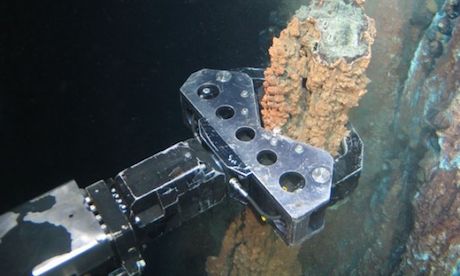Caritas coordinators from 19 Catholic Dioceses of the Catholic Church of Papua New Guinea oppose the decision to experiment with seabed mining.
The group have issued a statement saying the negative impacts of the mine greatly outweigh the anticipated benefits.
“Therefore, in solidarity with Alliance of Solwara Warriors, Bismarck Ramu Group, and other concerned organisations, we are compelled to speak out on behalf of the affected silent majority in the rural coastal and island communities,” the group said.
“We foresee that the coastal and island people whose daily lives are wholesomely dependent on the marine resources will be seriously deprived if the project goes ahead. In the economic and social realm, the dignity and complete vocation of the human person and the welfare of society as a whole are to be respected and promoted.”
The world’s first project to mine the seabed for minerals is expected to begin operations in Papua New Guinea in early 2019.
Nautilus Minerals is the Canadian company in charge of the Solwara 1 project, which will see copper and gold deposits mined from the seafloor at a depth of 1,600 metres, 30 kilometres off PNG’s New Ireland Province in the Bismarck Sea.
The Caritas group called on the government to immediately ban experimental seabed mining because:
- Nautilus Minerals Ltd has not demonstrated that seafloor resource development is commercially viable and environmentally sustainable
- The already commissioned Environmental Impact Assessment (EIA) Report is not available to the stakeholders concerned.
Nautilus Minerals Ltd has not provided evidences of successful projects - The local communities have not consented to the project going ahead
- The many unknowns make it a high risk project
The Annual Caritas PNG Forum 2017 took place in Madang at the end of February
Source
- looppng.com.png
- Courier Post
- abc.net.au
- Image: abc.net.au
News category: Asia Pacific.




